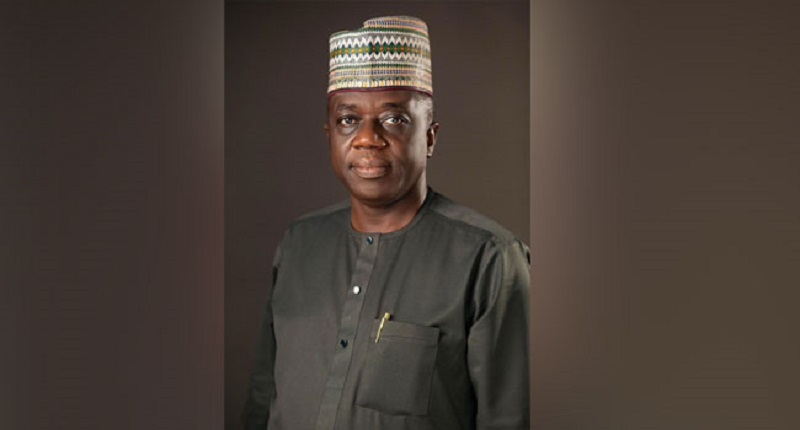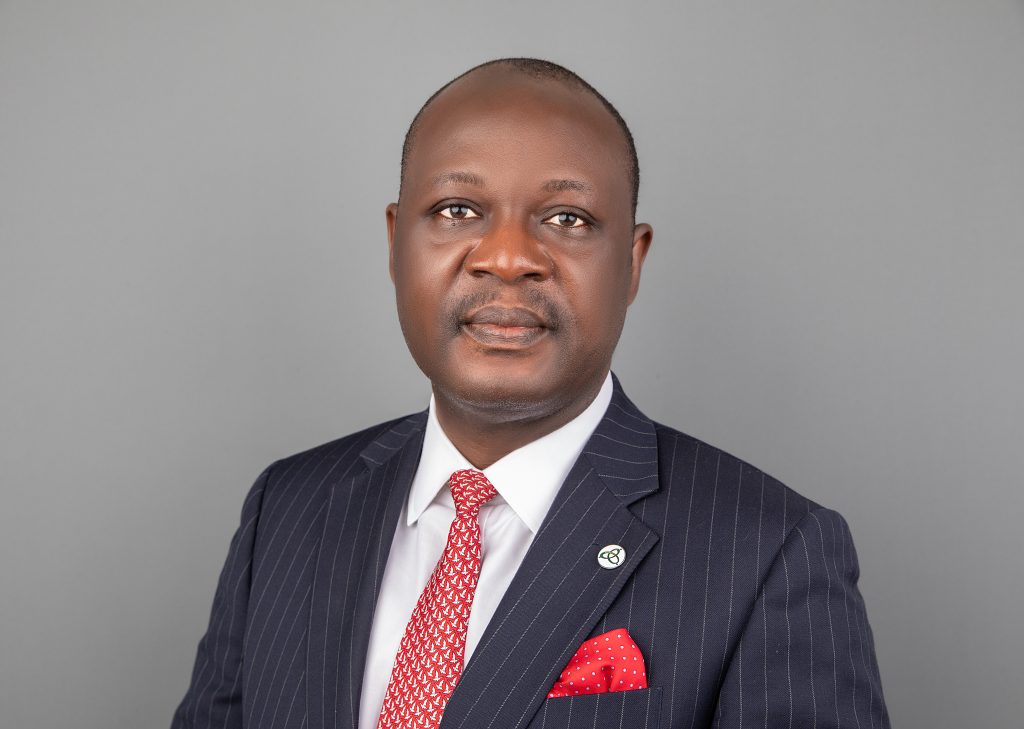Jobs/Appointments
Only 1 in 10 Global Workers Have In-Demand AI Skills—Study

Salesforce’s new digital skills survey shows that the vast majority of global workers think skills are more important than education qualifications or career background. Most people leaders (98%) believe the shift to skills-based hiring provides business benefits. Yet only 1 in 10 say they have AI skills — which is cited as one of today’s most in-demand digital skills.
This article looks at the survey’s full findings, based on 11,000+ workers across 11 countries, and shares new data on how the workforce perceives the role that generative AI will play in the jobs of today and tomorrow.
Eighty-four per cent of global workers consider the skills-based experience more important than a degree when trying to land a job in today’s market.
However, there’s a disconnect between the skills companies are hiring for and those currently used by the workforce. While 4 in 5 global workers report using digital skills in their day-to-day work, few report skills beyond collaboration technology, digital administration, and digital project management.
In contrast, today’s fastest growing and in-demand skills as reported by workers include artificial intelligence (AI) and coding/app development — but they rank among the least used in workers’ day-to-day roles.
The good news? There appears to be less fear — and more excitement — among workers about the potential of emerging technologies to transform the jobs of the future. This, paired with workers’ reported desire to learn new skills, suggests that companies can help close the digital skills gap by providing continuous, skills-based training to their employees.
A global movement toward skills-based hiring
The shift toward skills-based hiring is evident at all levels. Most (82%) people leaders surveyed said that skills are the most important attribute when evaluating candidates. Only 18% said that relevant degrees are the most important.
Over half of people leaders (56%) cite talent retention as a business benefit to skills-based hiring. Increased workforce diversity (48%) and knowledge sharing (46%) also ranked highly.
Additionally, most people believe that prioritizing employees’ digital skills development will have positive impacts on wider business performance, citing increased productivity (47%), better team performance (43%), and improved problem-solving capabilities (40%).
Leaders and employees agree on the need for AI skills
Workers are excited about emerging AI technologies like generative AI. Sixty per cent of global workers reported excitement about the prospect of using generative AI for their job. In fact, more workers were excited about its use in their workplace (58%) than worried about it replacing them in their job (42%). This is in line with interest from management: Globally, two-thirds of people leaders(67%) say that their company is considering ways to use generative AI.
Despite this excitement, recent research shows that while over half of U.S.-based senior IT leaders say their business is currently using or experimenting with generative AI, 66% say their employees don’t have the skills to successfully leverage the technology.
Workers agree that AI skills are important: Nearly one-fourth of global workers rank AI skills as among the top three most important digital skills right now. This number rises when asked about the importance of these skills over the next five years.
As needs evolve, workplace skills lag
Despite its importance to their future skill set, only 1 in 10 workers say their day-to-day role currently involves AI. A mere 14% say their role involves other, related digital skills like encryption and cyber security, and a smaller 13% claim to use coding and app development skills.
The industry indexing the highest for AI skills, specifically, is the technology industry, but even for this industry, less than a third of employees (27%) use AI skills within their roles today. Outside of traditional IT roles, this number drops further; less than 10% of those in healthcare (8%) and the public sector (6%) report they use AI skills in their day-to-day role.
The path forward is upskilling. Nearly all (97%) global workers believe businesses should prioritize AI skills in their employee development strategy.
Upskilling is critical across wide swaths of these emerging technologies. As a result of the rise in AI and automation, people leaders say data security skills (60%), ethical AI and automation skills (58%), and programming skills (57%) will become increasingly important in the workplace. When asked what ‘soft’ skills will likely be more important as a result, people leaders ranked creative imaginative skills (56%), customer relationship skills (53%), and leadership skills (51%) highest.
Fortunately, companies seeking to boost emerging technology skills and focus on skills-based hiring have something going for them — workers want to expand their limited set of digital skills. Nine in 10 believe that businesses should prioritize digital skills development for their employees.
Jobs/Appointments
Tinubu Appoints Ogunjumi Acting Accountant General as Madein Retires

By Adedapo Adesanya
President Bola Tinubu has appointed Mr Shamseldeen Babatunde Ogunjimi as the Acting Accountant General of the Federation (AGF).
This was contained in a statement on Tuesday by presidential spokesman, Mr Bayo Onanuga.
“His appointment is effective immediately following the pre-retirement leave of the incumbent AGF, Mrs Oluwatoyin Sakirat Madein,” a part of the statement read.
“In announcing Madein’s successor, President Tinubu ensures a seamless transition in the administration of Nigeria’s treasury and consolidates the implementation of the present administration’s treasury policy reforms,” the statement added.
Mr Onanuga said Mr Ogunjimi brings over 30 years of extensive experience in financial management across the public and private sectors.
He described the appointee as a career civil servant and the most senior director in the Office of the Accountant General of the Federation (OAGF),
“He has held significant positions, including Director of Funds at the OAGF and Director of Finance and Accounts at the Ministry of Foreign Affairs.
“A chartered accountant, certified fraud examiner, chartered stockbroker, and chartered security and investment specialist, Mr Ogunjimi’s academic qualifications include a Bachelor of Science (BSc) in Accountancy and a Master’s in Finance and Accounting,” the statement added.
According to Mr Onanuga, President Tinubu expressed his confidence in his appointment, saying, “The Office of the Accountant General of the Federation is pivotal to our nation’s treasury management operations. Mr Ogunjimi’s wealth of experience and notable competence will ensure the continued effectiveness of this vital institution as we advance our economic reform agenda.”
President Tinubu also commended the outgoing Accountant General of the Federation, Mrs Madein, for her dedication and selfless service to the nation.
After reaching the civil service’s statutory retirement age, Mrs Madein is retiring effective March 7, 2025.
Jobs/Appointments
CBN Denies Forceful Mass Retirement Amid Restructuring

By Adedapo Adesanya
The Central Bank of Nigeria (CBN) has dismissed claims of forced mass retirement as part of efforts by Governor Yemi Cardoso to restructure the workforce of the organisation.
In a statement released on Wednesday, the Acting Director of Corporate Communications, Mrs Hakama Sidi Ali, clarified that its Early Exit Package (EEP) is entirely voluntary and without any negative repercussions for eligible staff.
According to the statement, the decision to implement the exercise was the outcome of extensive consultations with the bank’s Joint Consultative Council (JCC), a body representing staff interests.
Mrs Sidi Ali explained that the EEP, a longstanding policy previously accorded to the executive cadre, has now been made available to eligible staff at all levels.
“For some time, staff representatives through the JCC had called on management to approve the early exit package for all cadres. Following these discussions, management decided to meet this popular demand,” she said in the statement.
Addressing concerns about potential repercussions for staff who decline the package, Mrs Sidi Ali reaffirmed management’s commitment to supporting employees’ professional growth and well-being, describing the concerns as unfounded.
She further emphasized that the initiative is an internal corporate matter designed to promote career development for staff.
According to wide spread reports, there have been plans to retire approximately 1,000 employees by the end of the year with a payoff estimated to cost over N50 billion.
The mass retirement, which was announced in a circular issued three weeks ago, mandates affected employees to apply for the Early Exit Package (EEP).
The statement allegedly warned employees with less than one year of service or unconfirmed appointments to refrain from applying for the program, noting that the application would remain open until December 7, with an effective exit date of December 31, 2024.
It was reported that the entire EEP was valued at N50 billion.
Jobs/Appointments
CBN Okays Appointment of Benson Ogundeji as Greenwich Merchant Bank CEO

By Modupe Gbadeyanka
The Central Bank of Nigeria (CBN) has approved the appointment of Mr Benson Ogundeji as the chief executive of Greenwich Merchant Bank Limited.
The board of the financial institution for businesses had picked Mr Ogundeji as its substantive CEO but awaited the authorisation of the banking sector regulator.
He brings over three decades of extensive banking experience to this role as a seasoned financial services professional, who previously served as Executive Director at Greenwich Merchant Bank from July 2020, where he played a pivotal role in the bank’s successful transition from the legacy Greenwich Trust Limited to a merchant bank.
In this capacity, he provided oversight for Corporate Banking, Treasury and Global Markets.
Throughout his career, Mr Ogundeji has demonstrated exceptional expertise in business development and operational excellence.
Before joining the firm, he held various senior leadership roles at prominent financial institutions, including Ecobank Nigeria, GTBank, and other notable banks, where he consistently displayed exceptional leadership skills.
His appointment comes at a crucial time as Greenwich Merchant Bank commences the next phase of its growth plans. Having related closely with the new CEO, as an Executive Director and acting CEO in the last four years, the board has expressed confidence about his ability to lead the bank in delivering our strategic goals.
“The board is pleased to announce the appointment of Benson Ogundeji as our Managing Director/Chief Executive Officer,” the chairman of Greenwich Merchant Bank, Mr Kayode Falowo, stated.
-

 Feature/OPED5 years ago
Feature/OPED5 years agoDavos was Different this year
-
Travel/Tourism8 years ago
Lagos Seals Western Lodge Hotel In Ikorodu
-

 Showbiz2 years ago
Showbiz2 years agoEstranged Lover Releases Videos of Empress Njamah Bathing
-

 Banking6 years ago
Banking6 years agoSort Codes of GTBank Branches in Nigeria
-

 Economy2 years ago
Economy2 years agoSubsidy Removal: CNG at N130 Per Litre Cheaper Than Petrol—IPMAN
-

 Banking2 years ago
Banking2 years agoFirst Bank Announces Planned Downtime
-

 Sports2 years ago
Sports2 years agoHighest Paid Nigerian Footballer – How Much Do Nigerian Footballers Earn
-

 Technology4 years ago
Technology4 years agoHow To Link Your MTN, Airtel, Glo, 9mobile Lines to NIN






















